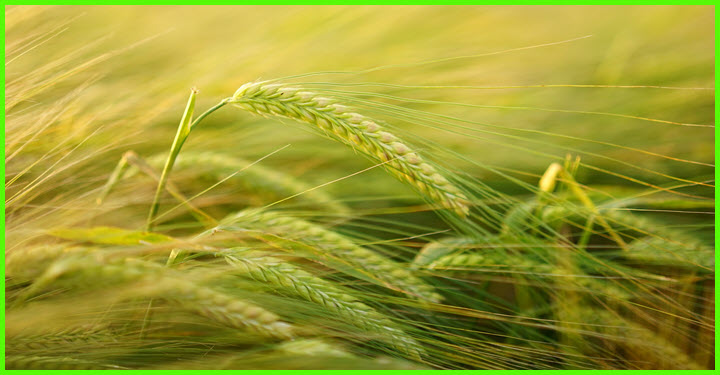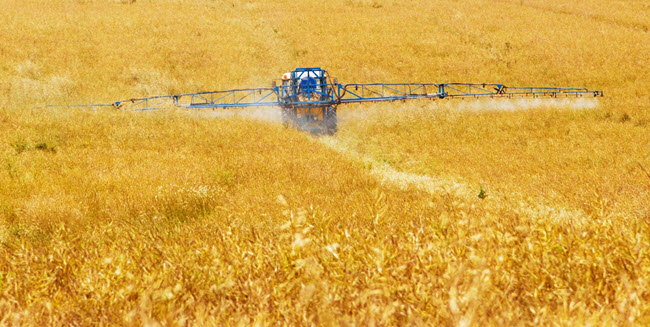50 Years Ago We Never Had This Problem

What is the real reason that wheat has become so toxic? It's not the gluten. Is it the new seeds – the GMO seed? Or is it the change in the way farmers grow their wheat to maximize their harvests? It's shocking what greed for profit has brought us to, both by the companies that manufacture seeds and chemicals and all the farmers that have bought into this system of farming. Others may argue that there is a more sinister Deep State agenda lurking in the background, they actually want us to be sick, so they can make more profits trying to treat our symptoms.
The stories became far too frequent to ignore. Emails from folks with allergic or digestive issues to wheat in the United States experienced no symptoms whatsoever when they tried eating pasta on vacation in Italy.
Confused parents wondering why wheat consumption sometimes triggered autoimmune reactions in their children but not at other times.In my own home, I’ve long pondered why my husband can eat the wheat I prepare at home, but he experiences negative digestive effects eating even a single roll in a restaurant.
There is clearly something going on with wheat that is not well known by the general public. It goes far and beyond organic versus non-organic, gluten or hybridization because even conventional wheat triggers no symptoms for some who eat wheat in other parts of the world.What indeed is going on with wheat?
For quite some time, I secretly harbored the notion that wheat in the United States must, in fact, be genetically modified. GMO wheat secretly invading the North American food supply seemed the only thing that made sense and could account for the varied experiences I was hearing about.

I reasoned that it couldn’t be the gluten or wheat hybridization. Gluten and wheat hybrids have been consumed for thousands of years. It just didn’t make sense that this could be the reason for so many people suddenly having problems with wheat and gluten in general in the past 5-10 years.
Finally, the answer came over dinner a couple of months ago with a friend who was well versed in the wheat production process. I started researching the issue for myself, and was, quite frankly, horrified at what I discovered.
The good news is that the reason wheat has become so toxic in the United States is not because it is secretly GMO as I had feared (thank goodness!).
The bad news is that the problem lies with the manner in which wheat is grown and harvested by conventional wheat farmers.
You’re going to want to sit down for this one. I’ve had some folks burst into tears in horror when I passed along this information before.
Common wheat harvest protocol in the United States is to drench the wheat fields with Roundup several days before the combine harvesters work through the fields as the practice allows for an earlier, easier and bigger harvest.Pre-harvest application of the herbicide Roundup or other herbicides containing the deadly active ingredient glyphosate to wheat and barley as a desiccant was suggested as early as 1980. It has since become routine over the past 15 years and is used as a drying agent 7-10 days before harvest within the conventional farming community.USDA pesticides applied to wheat
According to Dr. Stephanie Seneff of MIT who has studied the issue in depth and who I recently saw present on the subject at a nutritional Conference in Indianapolis, desiccating non-organic wheat crops with glyphosate just before harvest came into vogue late in the 1990’s with the result that most of the non-organic wheat in the United States is now contaminated with it. Seneff explains that when you expose wheat to a toxic chemical like glyphosate, it actually releases more seeds resulting in a slightly greater yield: “It ‘goes to seed’ as it dies. At its last gasp, it releases the seed” says Dr. Seneff.
According to the US Department of Agriculture, as of 2012, 99% of durum wheat, 97% of spring wheat, and 61% of winter wheat has been treated with herbicides. This is an increase from 88% for durum wheat, 91% for spring wheat and 47% for winter wheat since 1998.Here’s what wheat farmer Keith Lewis has to say about the practice:
I have been a wheat farmer for 50 yrs and one wheat production practice that is very common is applying the herbicide Roundup (glyposate) just prior to harvest. Roundup is licensed for preharvest weed control. Monsanto, the manufacturer of Roundup claims that application to plants at over 30% kernel moisture result in roundup uptake by the plant into the kernels. Farmers like this practice because Roundup kills the wheat plant allowing an earlier harvest.A wheat field often ripens unevenly, thus applying Roundup preharvest evens up the greener parts of the field with the more mature. The result is on the less mature areas Roundup is translocated into the kernels and eventually harvested as such.
This practice is not licensed. Farmers mistakenly call it “desiccation.” Consumers eating products made from wheat flour are undoubtedly consuming minute amounts of Roundup. An interesting aside, malt barley which is made into beer is not acceptable in the marketplace if it has been sprayed with preharvest Roundup. Lentils and peas are not accepted in the market place if it was sprayed with preharvest roundup….. but wheat is OK.. This farming practice greatly concerns me and it should further concern consumers of wheat products.Using Roundup on wheat crops throughout the entire growing season and even as a desiccant just prior to harvest may save the farmer money and increase profits, but it is devastating to the health of the consumer who ultimately consumes the glyphosate residue laden wheat kernels.
Glyphosate in wheat isn't the only problem with using this chemical. Glyphosate is water soluble and a fair amount of in gets dissolved in rainwater that soaks into our soil and ends up in the water table.. Water quality test are showing increased levels of glyphosate in our water supplies. Next thing you know people will become allergic to their drinking water.
Glyphosate has many harmful effects on us humans. But it is a slow process for the symptoms to appear.
What’s worse is that the negative impact of glyphosate exposure is slow and insidious over months and years as inflammation gradually gains a foothold in the cellular systems of the body.
The consequences of this systemic inflammation are most of the diseases and conditions associated with the Western
lifestyle:
Gastrointestinal disorders
Obesity
Diabetes
Heart Disease
Depression
Autism
Infertility
Cancer
Multiple Sclerosis
Alzheimer’s disease
And the list goes on and on and on …
Because these health problems don't all appear instantly, it can be hard to blame glyphosate directly. Besides their are other common practices that come into play as well. Vaccinations that bring on the increase in autoimmune diseases. The consumption of way too much sugar in our diets. And the use of GMO's – they are banned in Europe. I'm sure you can think of others like air pollution and those geoengineering chemical sprays.
So what can we do? Changing our diets by eating healthy foods is one way. Many people are jumping on the low carb, keto diet band wagon. This lifestyle change in food consumption reduces sugars drastically as well as the consumption of grains such as wheat. Organic food consumption reduces a lot of chemicals from our foods. And you really have to watch the ingredient labels on any kind of processed food.
One last suggestion is to pick up Bill's book “Body Reboot” while it is on special – Free + shipping ($29. value). The book goes into the lifestyle changes of a healthy diet and the advantages of the keto diet to loose weight.
For more information of the glyphosate problem check out the source article.
The images came from pixabay.com.
